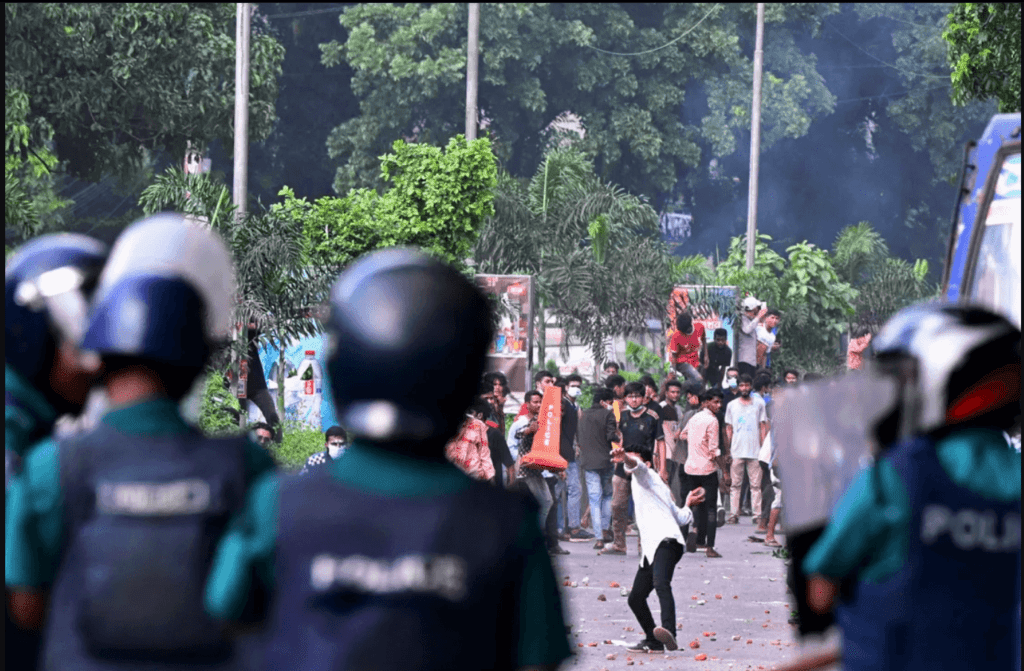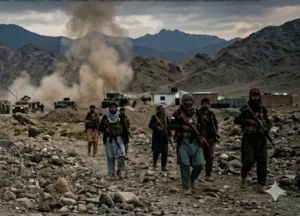Bangladesh saw a rise in deadly violence as massive protests over civil service job quotas intensified. Student protesters faced pro-government supporters and armed police, igniting widespread anger. Masses opposed to the quota system argue that it is discriminatory and benefits only a select group.
Protests erupted all over Bangladesh, which took a toll for the worse in recent days. This happened when the court issued an order to reinstate the rule for a 30% job quota for disabled people, children, and freedom fighters, who played a part in the country’s liberation movement in 1971.
Students took to the roads in protest against this quota system. They contend that the job reservations for freedom fighters primarily benefit a select group associated with Hasina’s Awami League, the party that led the independence movement from Pakistan.
Their stance says this system restricts job opportunities for many qualified candidates, fostering favoritism and inequity in government employment. There have been reports of multiple people losing their lives due to this violence. Tear gas and rubber bullets were used against the protestors by police officers.
In response to the escalating unrest, Bangladeshi authorities have cut off nationwide mobile and internet services, ordered the closure of schools and universities, and deployed security forces to manage the riots. Human rights groups have raised their voices against the authorities for using excessive and unlawful force against protesters, further fueling the widespread anger and discontent over the civil service job quotas.
Due to the turmoil caused by the violence against these protests, the Supreme Court decided to suspend the order for restoration of the quota system, which was done by the High Court.
The court has scheduled a hearing for the government’s challenge to the High Court ruling.
While the Hasina government claims to support the abolition of the quota system, a stance it plans to reiterate before the Supreme Court, student protesters remain skeptical. They demand a legal correction to ensure the quota is permanently removed, expressing distrust in the government’s promises.









